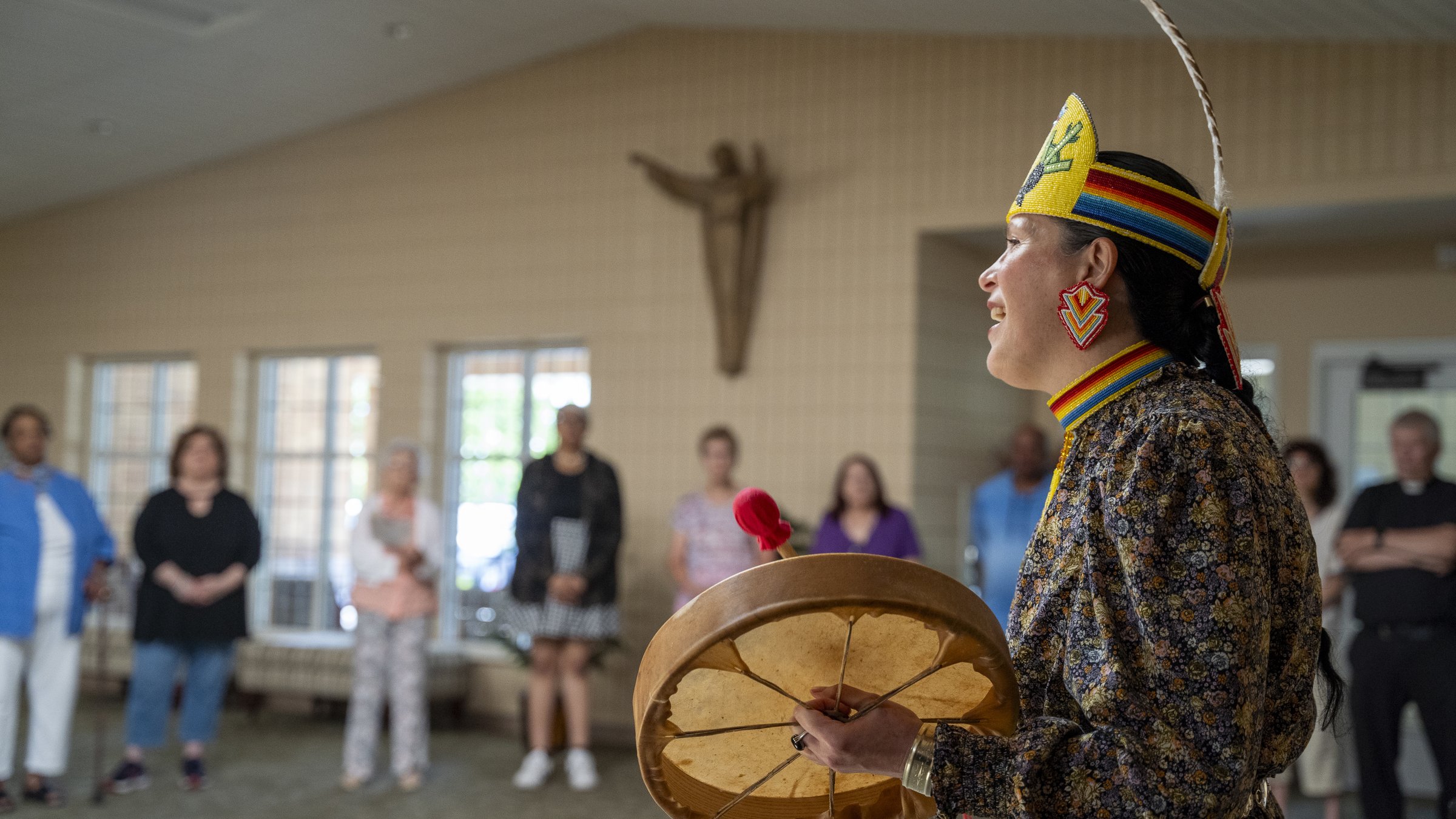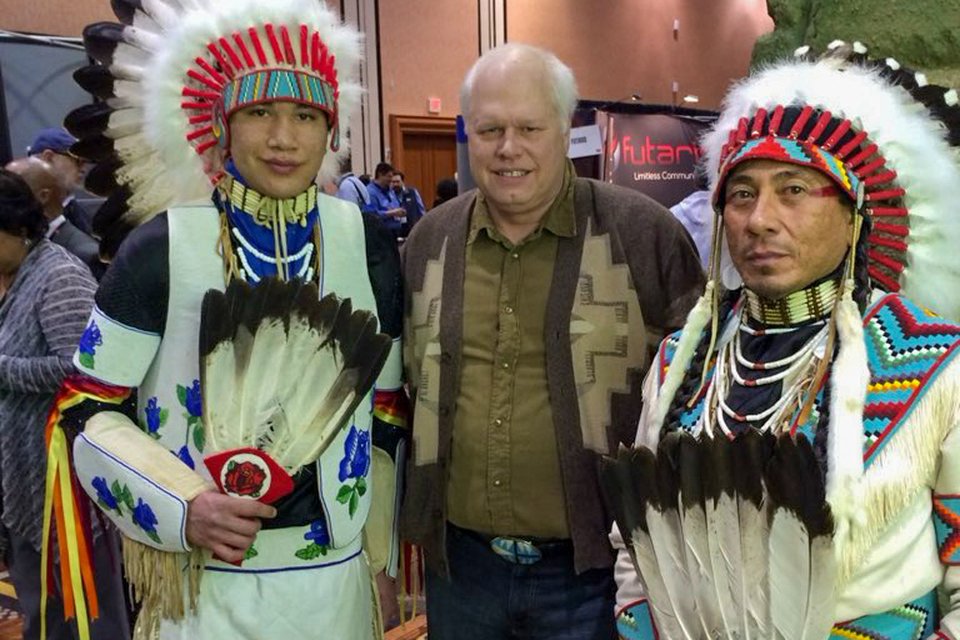Nicholas Black Elk St. Kateri Circle meets monthly to educate, celebrate American Indian culture in Archdiocese of Detroit
DEARBORN — American Indian Catholics and friends of American Indians gathered June 22 at St. Kateri Tekakwitha Parish in Dearborn for a celebration combining elements of Native spirituality with the Catholic faith.
The yearly celebration of the Strawberry Moon feast, which marks June’s full moon, signals that it is time to harvest the strawberries and enjoy the bountiful fruits of the earth, which God gives, said Deacon Steven Morello, who in July 2023 was appointed by Archbishop Allen H. Vigneron as the Archdiocese of Detroit's missionary to the American Indians.
“The name ‘Strawberry Moon’ is believed to have originated from Native American tribes, particularly Algonquin tribes in North America,” Deacon Morello told Detroit Catholic. “That has a particular significance for us today because St. Kateri’s mother was Algonquin, so what we celebrate today is very likely the same celebration that our own St. Kateri would celebrate in this season when she was alive with us.”
More than two dozen gathered to celebrate the Summer Solstice and the Strawberry Moon, which this year occurred on back to back days. The service was hosted by the Nicholas Black Elk St. Kateri Circle, a group of American Indian Catholics based in the Archdiocese of Detroit and led by missionary Deacon Morello, a member of the Sault Ste. Marie Tribe of Chippewa Indians on his mother’s side.
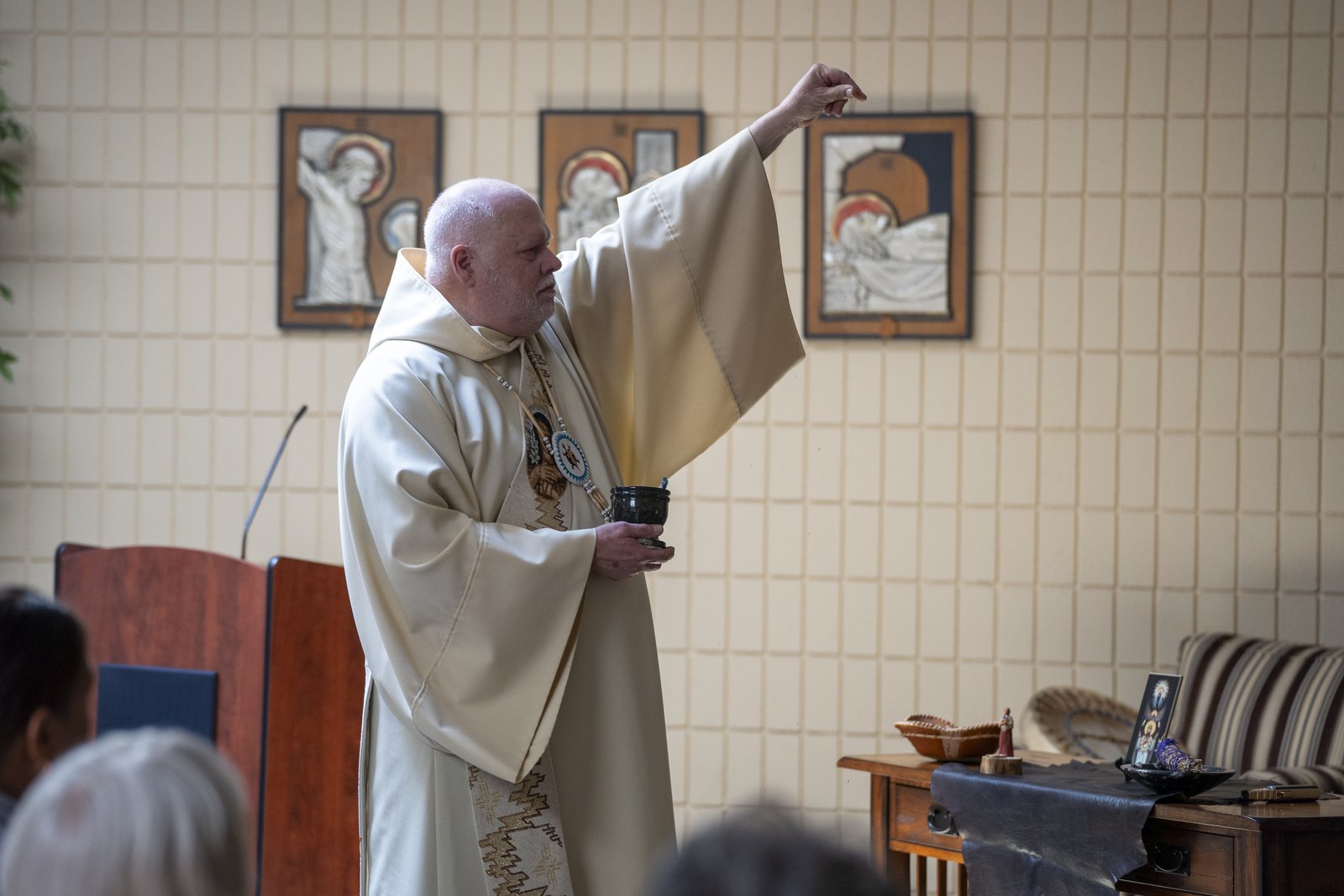
The group meets monthly via Zoom and periodically in person throughout the year for important Native feasts and to pray “in the Native way,” Deacon Morello told Detroit Catholic.
“At these gatherings, we ask St. Kateri to intercede for us. We pray for the canonization of Nicholas Black Elk, and we have cultural teachings of various kinds because so many of our members are urban Indians who have not had the opportunity to grow up in or visit a reservation,” Deacon Morello explained. “We are trying to do the things here with our circle that might have been second nature had you been raised on a reservation.”
St. Kateri Tekakwitha, a member of the Mowhawk tribe who lived in the 17th century, is the first American Indian saint, canonized in 2012 by Pope Benedict XVI. Deacon Morello said American Indian Catholics are hopeful that Nicholas Black Elk, a Lakota holy man who is recognized as a Servant of God, will be the next to be canonized.
The June 22 prayer service began with a sweetgrass smudging and a dance to a song in the Native American way, led by Yarenda’ Nde Yachondriak, a member of the Huron-Wendat nation.
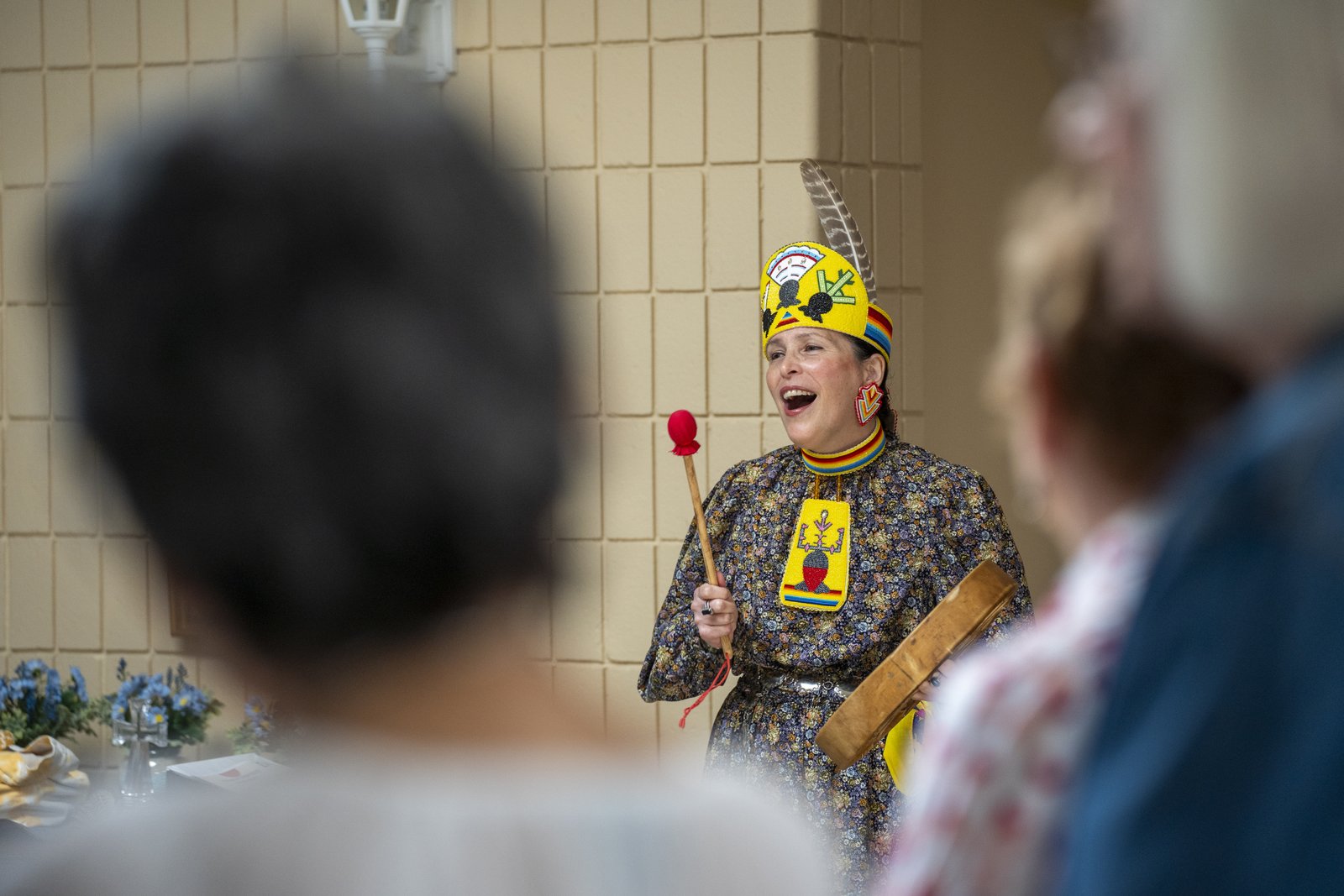
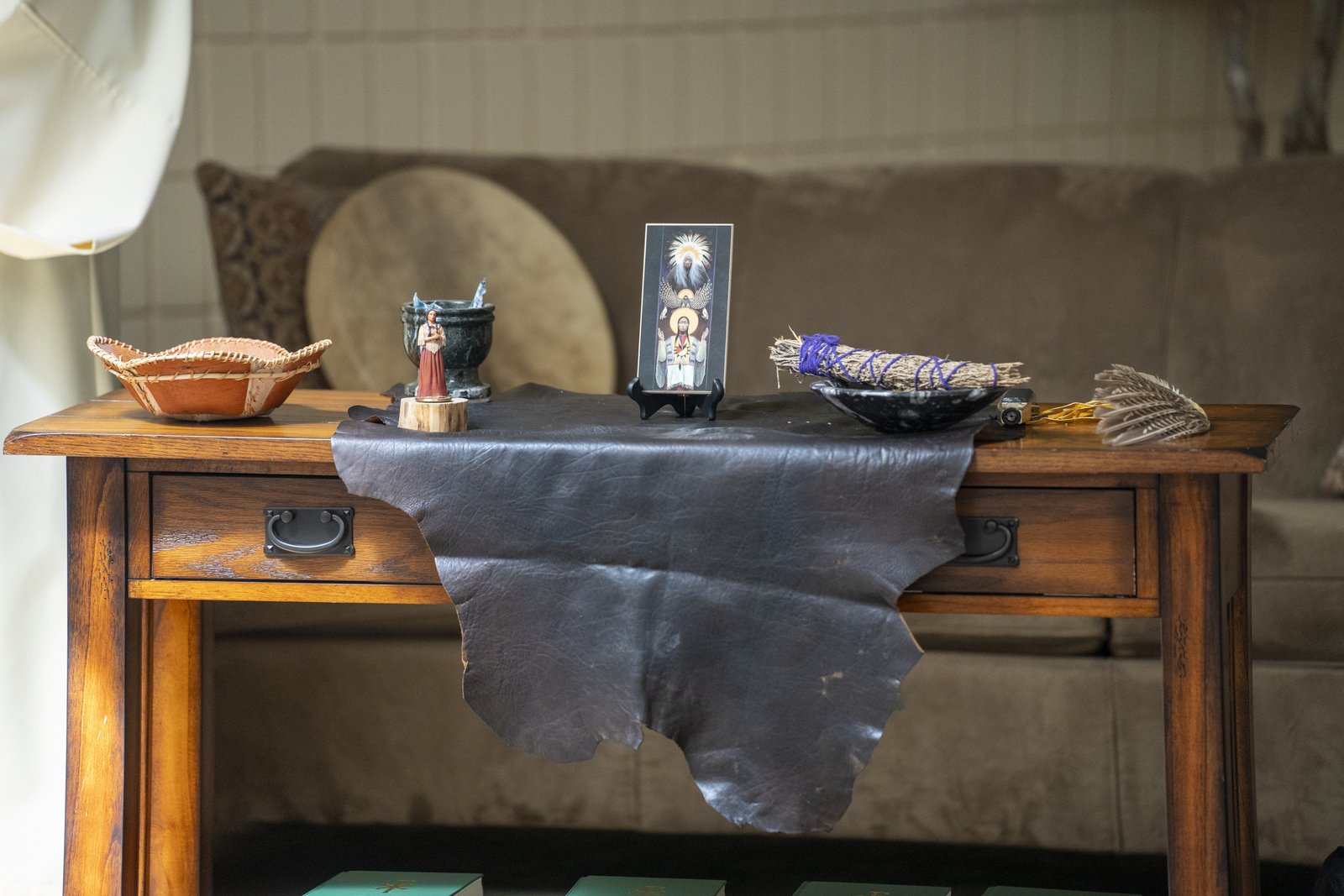
“Through the aromatic smoke, our spirits are lifted up, and our souls are cleansed, and everything that is a distraction or that takes away from our focus on the creator, on the Lord, is given flight and leaves us,” Deacon Morello explained.
Following the smudging ceremony, Deacon Morello offered a gift of tobacco to the Holy Spirit in the four directions — Deacon Morello likened both the smudging and tobacco offering to the use of incense at Mass.
“Tobacco is offered in many, many different situations,” Deacon Morello said. “In this situation, it being a spiritual gathering, I will offer tobacco to the four directions because we believe that the Holy Spirit — the Great Spirit — is within us, and above us and below us, and to our left and to our right and before us and behind us. And so by giving thanks for the four directions, we are thanking the Holy Spirit for being with us.”
In addition to the importance of the Strawberry Moon as a marker of the passage of time, Deacon Morello explained that different tribes have stories about the significance of strawberries in creation.
“Native people love to tell stories, and we have stories for just about everything, although our stories are very different because there are more than 574 federally recognized tribes in the United States,” Deacon Morello said. “Each tribe has its own rhythms, its own history, its own culture and its own stories. However, over the years, many of the customs and traditions of various tribes have blended in and been borrowed, especially as people move from one tribe to another voluntarily or not so voluntarily.”
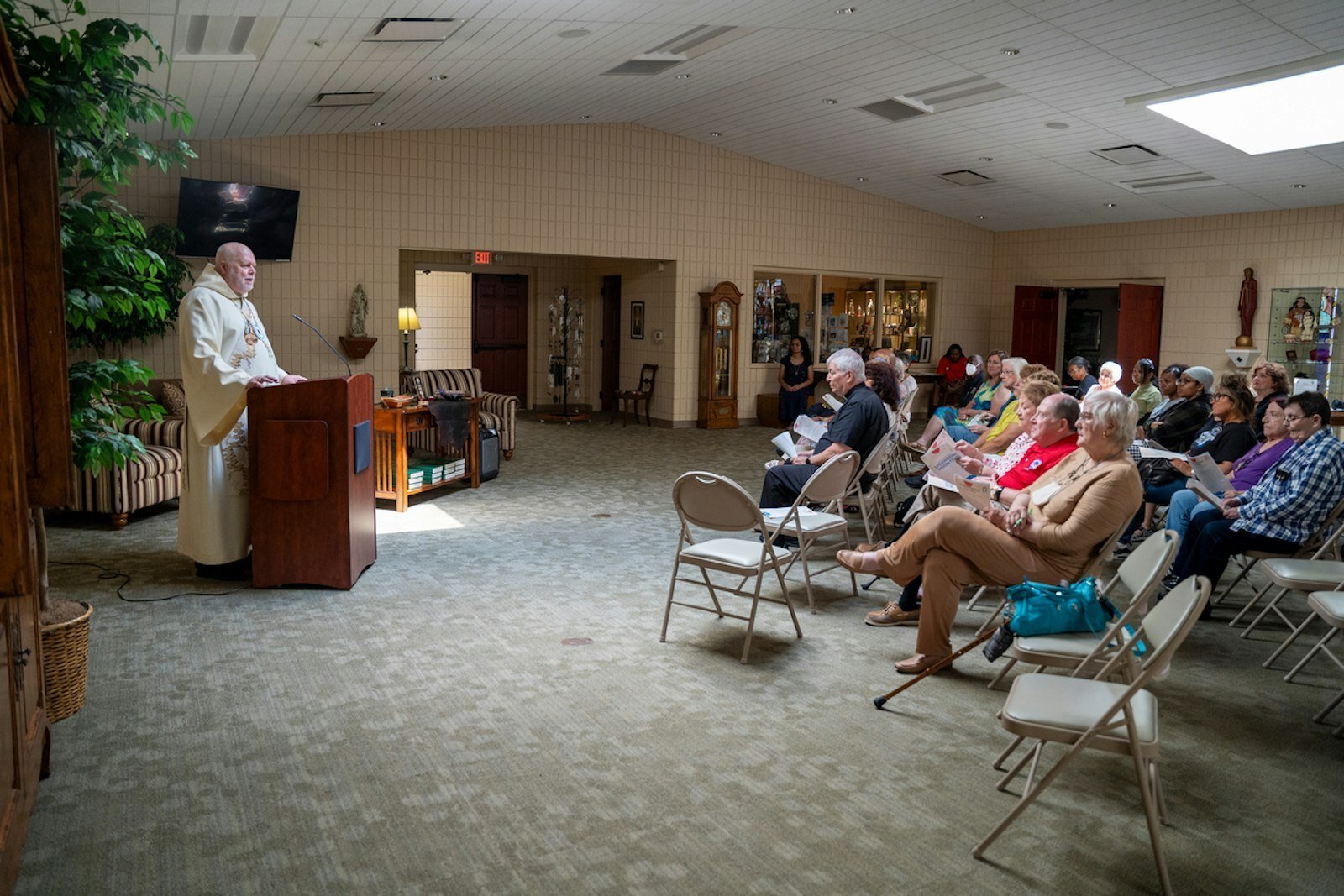
Deacon Morello recounted the Cherokee story of the strawberry, which, for them, signifies love and connection.
“According to the Cherokee, the creator used the fruit of the strawberry as a way to unite the first man and the first woman,” Deacon Morello said, explaining the story:
“After an argument, first woman walked away from her partner and said she was never returning. Hours later, first man began to worry about first woman and followed her path. The creator saw this and took pity on first man, offering to help reunite the couple. As first woman was walking, the creator ripened huckleberries along her path to slow her, but she didn’t stop. The creator tried again and ripened blackberries, but she didn’t stop,” Deacon Morello said.
Finally, the creator made a new, different berry to put in first woman’s path: bright, red, fragrant and sweet.
“She stopped and tried the fruit (the strawberry), and as she ate, happy memories of her partner returned,” Deacon Morello said. “First woman gathered more berries and turned around to share the fruits.”
Four Directions Prayer
To the North: to you great and Holy Spirit who dwell and abide to the north, this day we ask you to grant us good dreams. Come this night and every night, come into our homes and into our minds and fill us with the yearning for love of God and the good. Show us the good that we may follow and observe it. Banish evil dreams from our sleep and from our lives. Let neither deceit nor remorse, neither selfishness nor ill-will toward others disturb our sleep. Guard us at night when we are helpless. Come like the north winds, dispel the evil, watch over us, blanket our souls as the snow covers the earth and do not abandon us.
To the West: to you great and Holy Spirit who dwell and abide in the west, bestow on us goodwill. Show us a path so that we do not stumble or stray. Inspire us with the goodwill so that we may achieve. Teach us to seek after kindness, courage, cheerfulness, wisdom, patience and fairness and give us the wisdom to know right from wrong. Let us not think ill of our brothers or sisters. Let us not doubt our forefathers’ teachings or despise the animals of the forest, or forget the poor, or scorn our ceremonies, or envy our brothers and sisters, or distrust our visions or cower when in danger.
To the South: we are giving speech by the great and Holy Spirit to foster goodwill among ourselves and to commune with all creation. It has a both practical and spiritual end. It is a sacred act, but we have too often given hurt by angry words or misled our brothers and sisters by hasty words. When giving counsel, we have offered the benefit of our experience and knowledge either too soon or too late to do good. If we utter words as if they were nothing more than sound, our thoughts will be regarded as shallow and worthless, and so will we.
Into the East: When we wake up at dawn, we are refreshed and ready to direct our hands and our feet to our labor. But we also remember that among us are brothers and sisters who cannot look forward to the new day with the same spirit as ourselves. With us dwell a blind man, a lame woman, several orphans, a widow, a mute and a woman seeking a dream. Our patrons, with our hearts, our arrows and our medicines, we will make the day as light as we can for our brothers and sisters. We will lead the blind man, we will bear the lame woman, we will shelter the orphans, we will comfort the widow, and we will speak for the mute, and we will guide the woman seeking the dream.
Copy Permalink
Native American ministry


